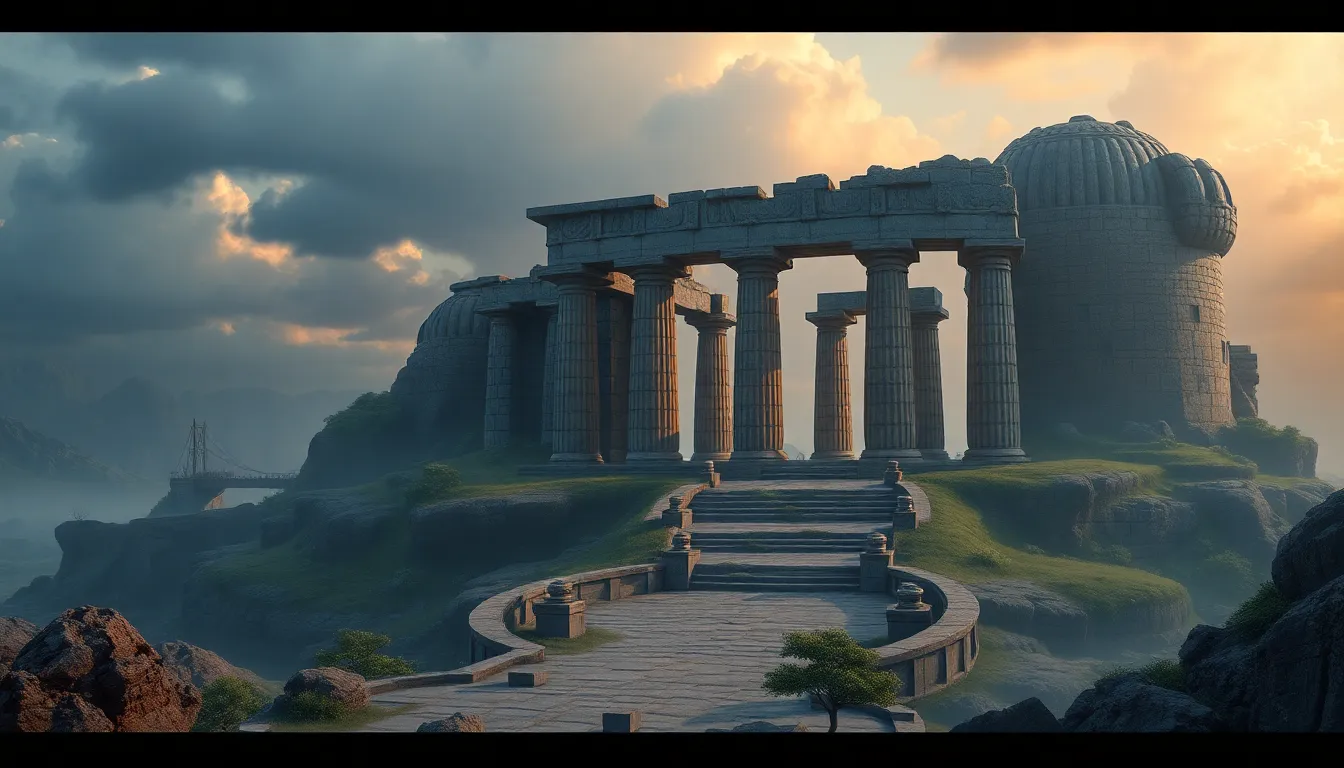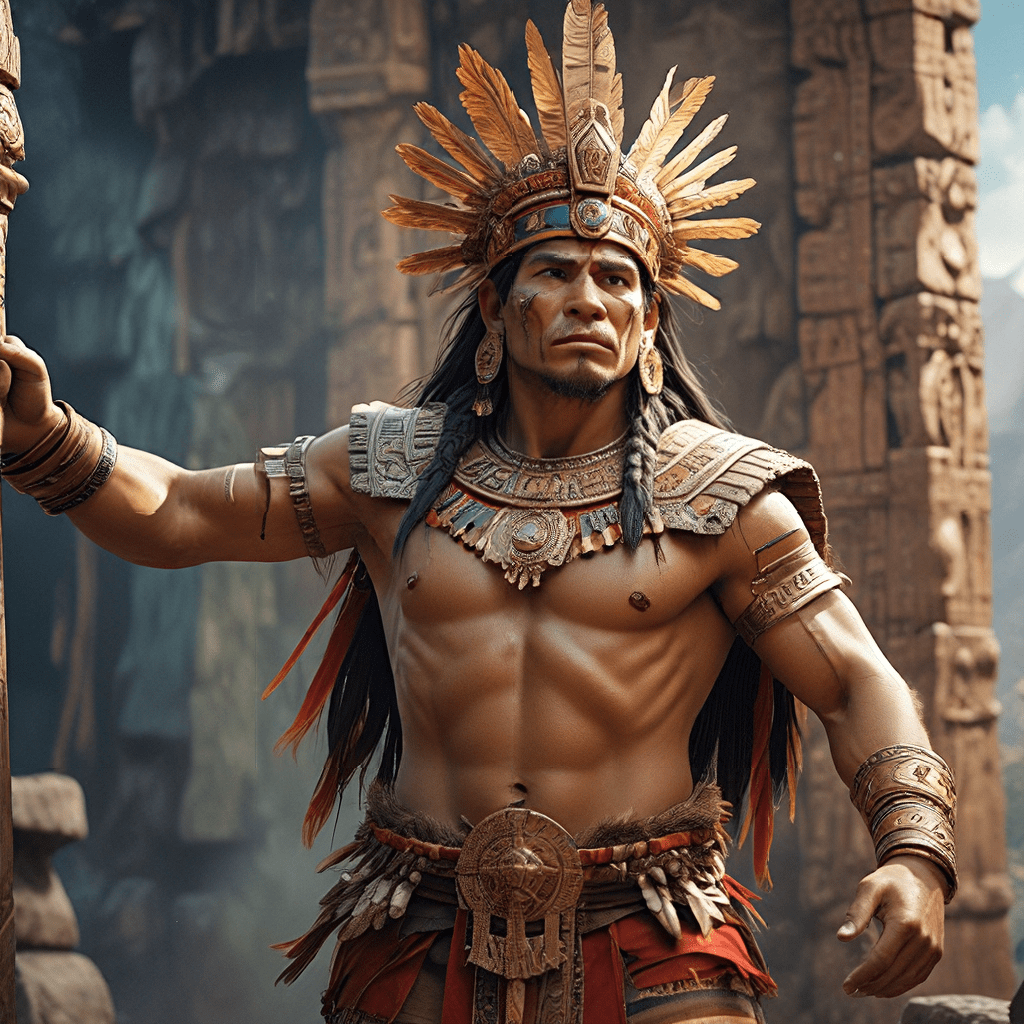The Island of the Gods: A Journey Through Ancient Mythology
I. Introduction
The Island of the Gods is a captivating realm steeped in rich history and vibrant mythology. Revered by ancient cultures, this island serves as a gateway to the divine, where the lines between reality and the supernatural blur. Its significance in mythology is profound, offering insights into the beliefs, values, and traditions of the people who once inhabited its shores.
Mythology, in ancient cultures, played a crucial role in explaining the mysteries of life and nature, guiding societal norms, and fostering a sense of identity among communities. Through this article, we embark on a journey through the mythology of the Island of the Gods, exploring its historical context, major deities, creation myths, legendary creatures, and the enduring legacy of these ancient tales.
II. Historical Context of the Island
A. Geographic location and its importance
The Island of the Gods is located in a region known for its stunning landscapes and diverse ecosystems. Its strategic position made it a vital hub for trade and cultural exchange among ancient civilizations. This geographic significance not only facilitated the movement of goods but also the exchange of ideas, beliefs, and mythologies.
B. Ancient civilizations that inhabited the island
Throughout history, several ancient civilizations have called this island home, each contributing to its rich tapestry of culture and mythology. Notable among them are:
- The early indigenous tribes, known for their animistic beliefs.
- The seafaring merchants who brought influences from distant lands.
- The empire builders who established divine monarchies, intertwining governance with religious practices.
C. Cultural exchanges and influences in mythology
The interactions between these civilizations led to a fusion of mythological narratives, resulting in a complex pantheon of deities and rich storytelling traditions. This cultural exchange not only shaped the island’s mythology but also influenced neighboring regions, creating a legacy that transcends time.
III. Major Deities of the Island
A. Overview of prominent gods and goddesses
The mythology of the Island of the Gods is characterized by a multitude of deities, each embodying different aspects of life and nature. Some prominent figures include:
- Goddess of Fertility: Often depicted as nurturing and life-giving.
- God of the Ocean: A powerful figure believed to control the waters.
- God of War: Representing strength and valor, often invoked before battles.
B. Roles and attributes of each deity
Each deity held specific roles within society:
- The Goddess of Fertility was revered for ensuring bountiful harvests.
- The God of the Ocean was both feared and respected, as sailors sought his favor for safe passage.
- The God of War inspired courage among warriors and was celebrated through various rites.
C. Myths associated with the major deities
Numerous myths have been passed down through generations, detailing the exploits and adventures of these deities. These stories often conveyed moral lessons and cultural values, serving to educate and inspire the island’s inhabitants.
IV. Creation Myths: Origins of the Island
A. Various creation stories from different cultures
Creation myths from the Island of the Gods are as diverse as the cultures that inhabit it. Each narrative offers a unique perspective on the origins of the island and its people. Common themes include:
- The emergence of the island from the ocean depths.
- The divine intervention of gods in shaping the land.
- The birth of humans from natural elements, such as earth and water.
B. Symbolism and meaning behind these myths
These creation stories often symbolize the relationship between nature and humanity, highlighting the importance of harmony and balance within the environment. They serve as a reminder of the interconnectedness of all living things.
C. Comparative analysis of creation myths
When comparing these myths, parallels can be drawn to other cultures’ narratives, showcasing universal themes in human storytelling. For instance, many cultures share the motif of a great flood or a cosmic battle that precedes the creation of the world.
V. Legendary Creatures and Spirits
A. Introduction to mythical creatures of the island
The Island of the Gods is also home to a variety of legendary creatures, each steeped in mystery and significance. Some notable beings include:
- Water Spirits: Guardians of rivers and lakes, often depicted as beautiful maidens.
- Mountain Guardians: Large, fearsome creatures said to protect sacred peaks.
- Forest Spirits: Trickster beings that embody the essence of nature.
B. Their roles in the mythology and cultural practices
These creatures play essential roles in the mythology of the island, often serving as protectors of the land or as symbols of natural forces. They are frequently invoked in rituals and ceremonies, emphasizing the importance of respecting nature.
C. Evolution of these legends through time
Over time, the stories of these legendary creatures have evolved, adapting to changing societal values and environmental circumstances. While some tales have faded into obscurity, others have been revitalized through modern storytelling and cultural practices.
VI. Festivals and Rituals: Celebrating the Divine
A. Overview of ancient festivals related to the deities
Festivals on the Island of the Gods are vibrant celebrations honoring the deities and the cycles of nature. Notable festivals include:
- Harvest Festival: A time of gratitude for the bountiful crops.
- Sea Festival: Celebrating the ocean’s gifts and seeking blessings for safe voyages.
- Warrior’s Day: Honoring the God of War with ceremonies and competitions.
B. Rituals and their significance in society
Rituals are integral to these festivals, serving to reinforce community bonds and cultural identity. They often involve:
- Offerings to the gods.
- Dances and performances reenacting mythological stories.
- Community feasts celebrating togetherness.
C. Modern-day celebrations and their roots in mythology
Many modern-day celebrations on the island have their roots in ancient mythology, showcasing the enduring legacy of these traditions. While some practices have been adapted, the core values of gratitude, respect, and community remain strong.
VII. Myths of Heroes and Demigods
A. Stories of legendary heroes linked to the island
The Island of the Gods is also home to tales of legendary heroes and demigods who embarked on epic quests. These stories often involve:
- Trials and tribulations faced in pursuit of glory.
- Interactions with deities and mythical creatures.
- Acts of bravery that inspired generations.
B. Analysis of their journeys and trials
These heroes often symbolize the struggles of humanity, embodying virtues such as courage, resilience, and honor. Their journeys serve as allegories for personal growth and the quest for identity.
C. Impact of these myths on cultural identity
The myths of heroes and demigods have significantly influenced the island’s cultural identity, instilling a sense of pride and connection to the past. They are celebrated through art, literature, and oral traditions, ensuring their continued relevance.
VIII. Artistic Representations of Mythology
A. Overview of ancient art forms depicting myths
Art has always been a powerful medium for storytelling, and the mythology of the Island of the Gods is no exception. Ancient art forms, such as:
- Carvings and sculptures in temples.
- Paintings on pottery and textiles.
- Dance and theater performances.
have vividly depicted mythological narratives and characters.
B. Significance of storytelling through art
These artistic representations serve not only to entertain but also to educate and preserve cultural heritage. Through visual storytelling, the myths of the island come to life, allowing future generations to connect with their ancestors’ beliefs and values.
C. Modern interpretations and adaptations
In contemporary times, artists continue to draw inspiration from these ancient myths, reinterpreting them in various forms



